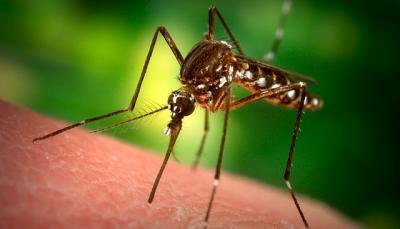
Insects and Diseases

Mission
The mission of the Vector-Borne Diseases Team is to systematically collect, analyze, interpret, and disseminate data on zoonotic, vector-borne diseases, and infestations among Georgians caused by insects and other arthropods. Information gathered is used to design control and prevention measures, to evaluate the effectiveness of public health interventions, and to improve services to populations at greatest risk.
Infestations:
-
Bed Bugs
Bed bugs, small wingless insects that feed solely on blood, are increasingly becoming a problem within residences of all kinds, including homes, apartments, hotels, cruise ships, dormitories and shelters. While bed bugs do not carry disease, their bite can cause allergic skin reactions in susceptible individuals.
-
Head Lice
Lice are parasites of warm-blooded animals, including man. Head lice are not known to transmit any human pathogens. The chief human health concerns associated with head lice are skin irritation at the feeding site, secondary bacterial infections from scratching, and the psychological "trauma" of the infestations.
-
Scabies
Scabies is caused by an infestation of the microscopic mite Sarcoptes scabei. Infestation is common, found worldwide, and affects people of all races and social classes. This mite burrows into the skin, causing intense itching and irritation. Skin between the fingers, the bend of the elbow or knee, and the shoulder blades are areas most often affected. The intense itching is accompanied by a rash.
-
Delusory Parasitosis
Vector Surveillance:
-
Mosquitoes
Mosquitoes can carry diseases and may transmit those diseases while blood feeding. Most mosquito bites do not result in infection. However, preventing mosquito bites (CDC) is the best way to decrease your chance of a mosquito-borne disease.
Mosquito Information
- Mosquito Facts & FAQS
- All About Mosquitoes (AMCA)
-
Truck Mounted Mosquito Control (CDC)
- Vectors and Pests (NEHA)
Mosquito Control Organizations
- Georgia Mosquito Control Association
- Mid-Atlantic Mosquito Control Association
- American Mosquito Control Association
- Tennessee Mosquito and Vector Control Association
-
Ticks
Ticks can carry diseases and may transmit those diseases while blood feeding. Most tick bites do not result in infection. However, the best way to decrease your chance of infection is to prevent tick bites by wearing repellent and removing any attached ticks properly as soon as possible.
Avoiding Tick Bites (CDC)
Removing a Tick Safely (CDC)
How to Get Your Tick Identified
Interactive Identification Key for the Hard Ticks (Ixodidae) of the Eastern U.S. (tick key)
Alpha-GAL Syndrome (CDC)
Asian Longhorned Tick, a recent invader (GDA)
Protect Yourself from Ticks (UGA Extension)
-
Summaries & Reports
Zoonotic and Vector-Borne Diseases (Epidemiology)
ZOONOTIC DISEASES: Avian Influenza, Brucellosis, Creutzfeldt-Jakob Disease (CJD), Hantavirus Pulmonary Syndrome (HPS), Leprosy (Hansen’s Disease), Leptospirosis, Plague, Psittacosis, Q Fever, Rabies, Toxoplasmosis, Tularemia
VECTOR-BORNE DISEASES: WNV, EEE, LAC, Spotted Fever Rickettsiosis (including Rocky Mountain Spotted Fever), Lyme Disease, Ehrlichiosis, Anaplasmosis, and Babesiosis
Page last updated 1/27/23